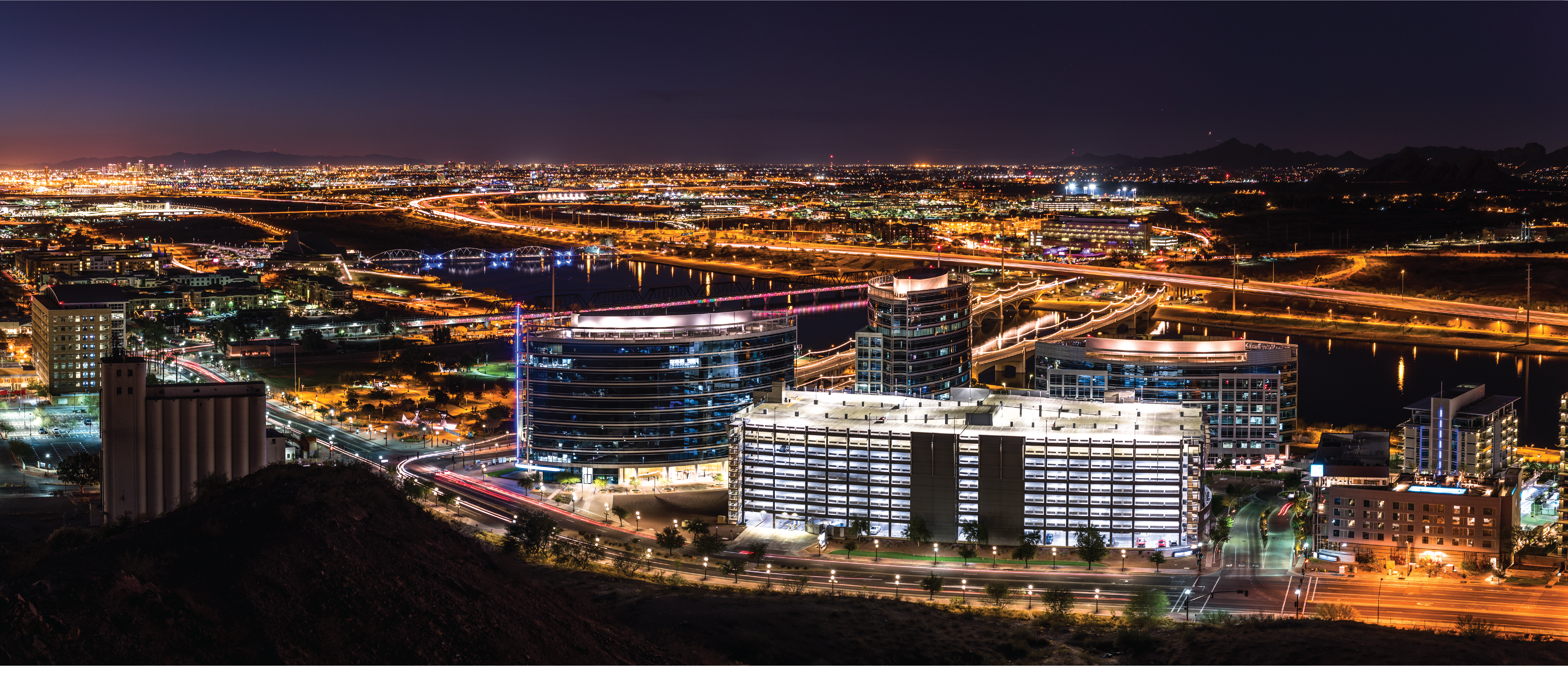

Read between the data: Greater Phoenix is a fast-growing technology hub
Published: 11/21/2019
Updated: 12/23/2019
By Chris Camacho, GPEC president and CEO
Greater Phoenix has received a significant amount of attention lately for our emergence as a fast-growing technology and innovation hub. Part of that recognition included Inc. hosting its annual conference at J.W. Marriott in Phoenix. The magazine, known for its yearly list of the country’s fastest-growing companies, also recently published highly read articles on the Greater Phoenix startup scene and our business-friendly environment.
Whenever a region receives significant attention for an economic development strategy, it is fair to ask whether the hype is real.
At the Greater Phoenix Economic Council (GPEC), we do not believe in hype.
We believe in data.
Here is what the data says:
- From 2009-2018, angel investors and venture capital firms invested $2.4 billion in Greater Phoenix companies.
- Since 2008, applied research expenditures at Arizona State University (ASU) have more than doubled.
- Over the last 10 years, enrollment at ASU’s Ira A. Fulton School of Engineering has increased by 68 percent, and the nation’s largest engineering program now confers more than twice the degrees it did a decade ago.
- Greater Phoenix significantly outpaces national averages in healthcare and technology job creation.
- Greater Phoenix ranks #4 out of the nation’s 50 largest metropolitan statistical areas in job creation.
- Arizona now ranks 6th in the nation for entrepreneurship, according to U.S. News and World Report.
That data tells a singular story: Greater Phoenix as a technology hub is not a marketing strategy.
This region is actively creating opportunities for the families and businesses that call this region home.
And that action is creating results and giving this region notoriety.
Of course, that data doesn’t tell the story of the thousands of business owners who pursue their entrepreneurial dreams every year in the region. Numbers can never adequately convey the full impact of entrepreneurs who risk their own livelihood to create jobs in the community they call home. The entire GPEC team is inspired and motivated by business owners who believe in our region as much as they believe in themselves—regardless of whether they start a three-man bakery or a thousand-woman engineering company. It is the entrepreneurial spirit of Greater Phoenix that advances our region to new heights.
While we want entrepreneurship to happen at scale, we know that cultivating an idea, standing up a business and growing a customer base are no small tasks. Just like we know that opening a new facility, identifying staffing needs, and developing an effective local recruitment strategy takes time.
That’s true in every metropolitan region in the country—even one as dynamic as Greater Phoenix.
But reinventing a region, like reinventing a company, takes time and intentionality—and the path to becoming the best at anything is never a smooth one.
Years of innovation helped Greater Phoenix-based LifeLock grow to a near-billion dollar valuation when it went public in 2012. At the time, the company was just seven years old. An aggressive growth strategy—helped by the region’s pro-business approach and a deep bench of talent—eventually led a $2.3 billion acquisition by Symantec in 2017.
The LifeLock story, including early round investments from giants like Kleiner Perkins and Goldman Sachs, happened in Greater Phoenix. The company was able to attract significant funding and a star-studded board of directors because of an aggressive strategy—and a belief that our region is a natural home for high-growth, high-potential technology companies.
Like LifeLock, business and civic leaders across this region are pursuing an aggressive strategy to make this Greater Phoenix synonymous with a thriving technology sector.
It is impossible to pursue an aggressive, innovation-based strategy without taking some chances and embodying the risk culture that is inherent in the startup community. Sometimes taking a chance doesn’t turn out like you had hoped.
That’s why it’s called taking a chance.
But in the long run, building on your successes, focusing on your strengths, and sticking to a compelling vision will minimize the impact of opportunities that did not turn out like you had planned—and that is not just spin.
That is not just an economic development shop promoting the region and community they love.
That is the Greater Phoenix story.
And we have the data to prove it.